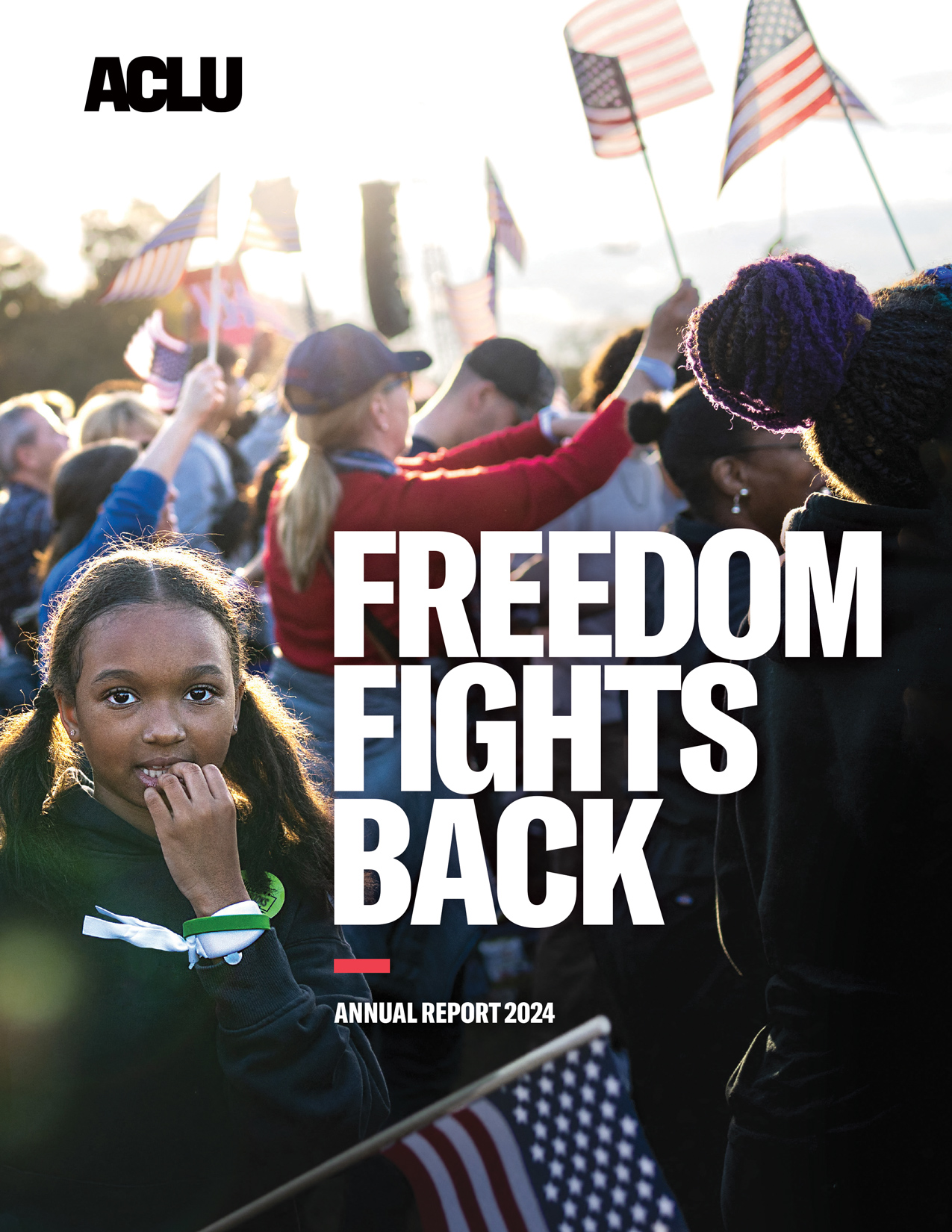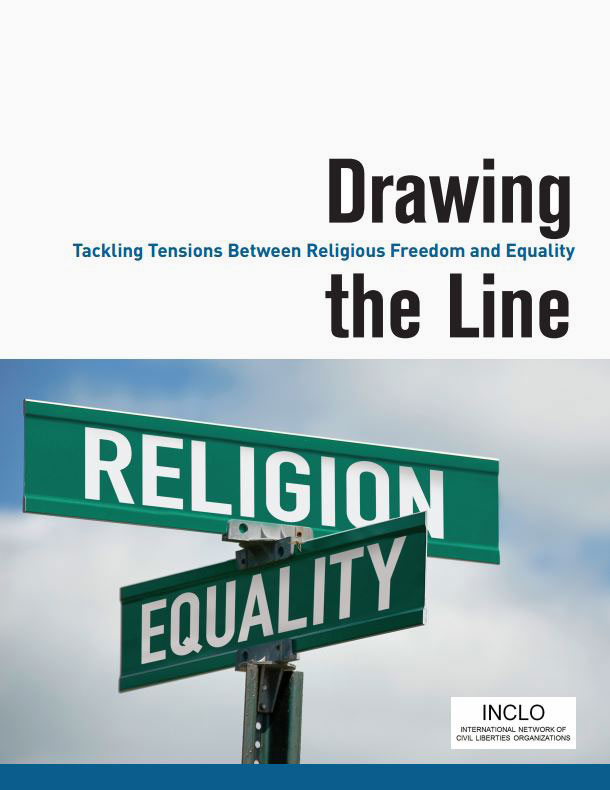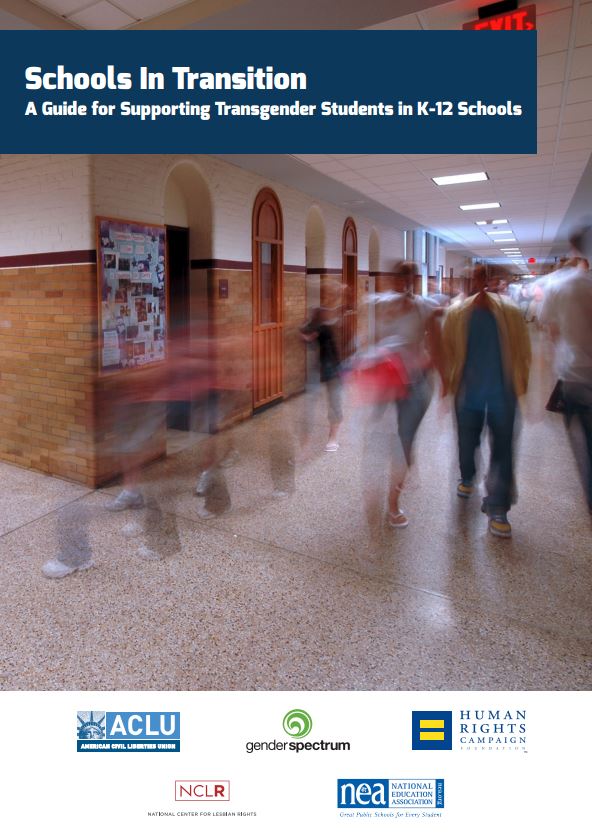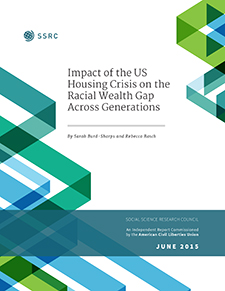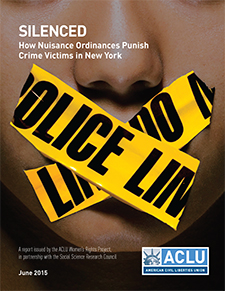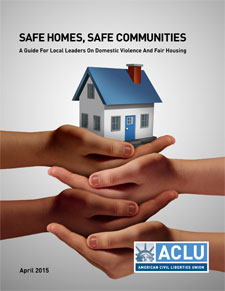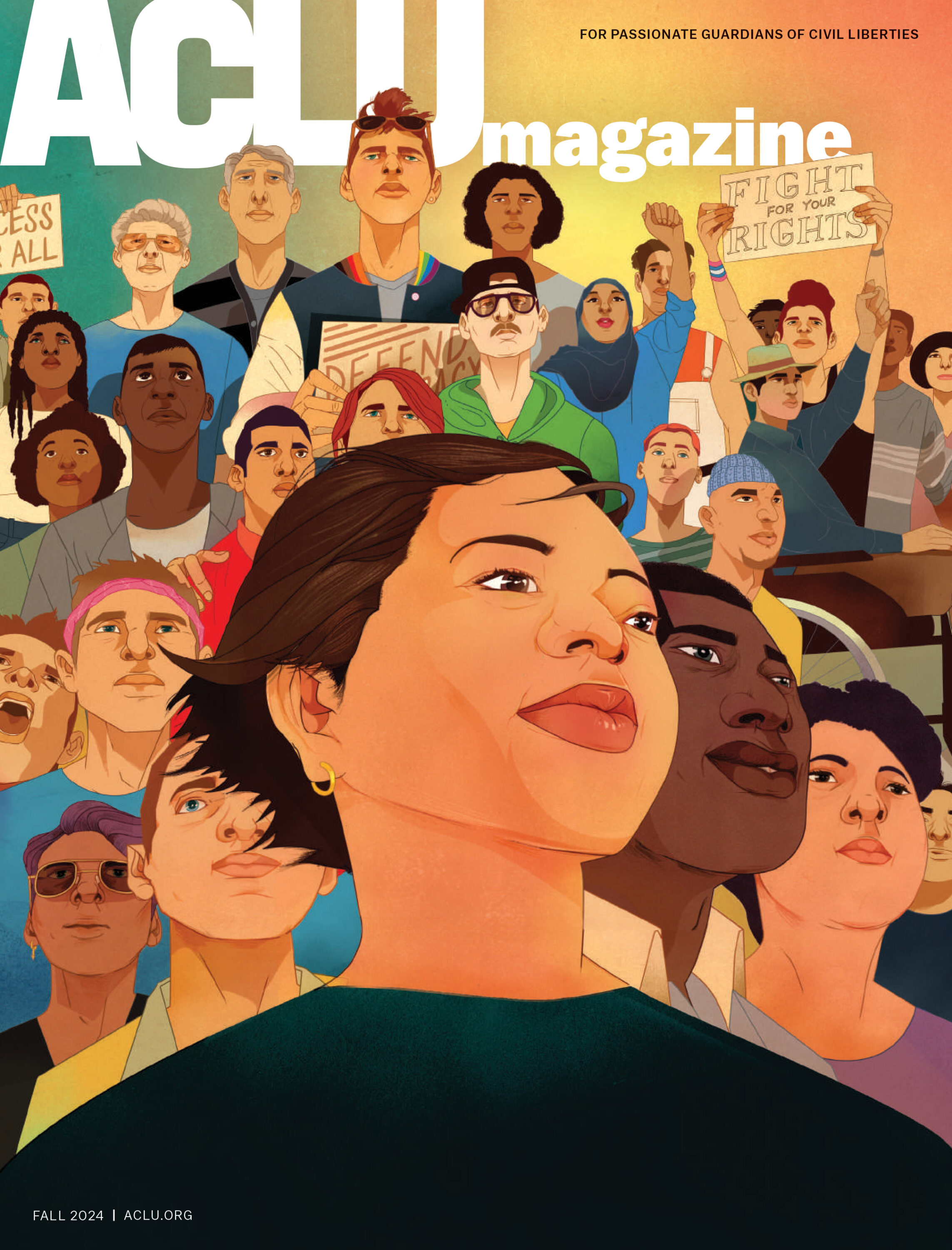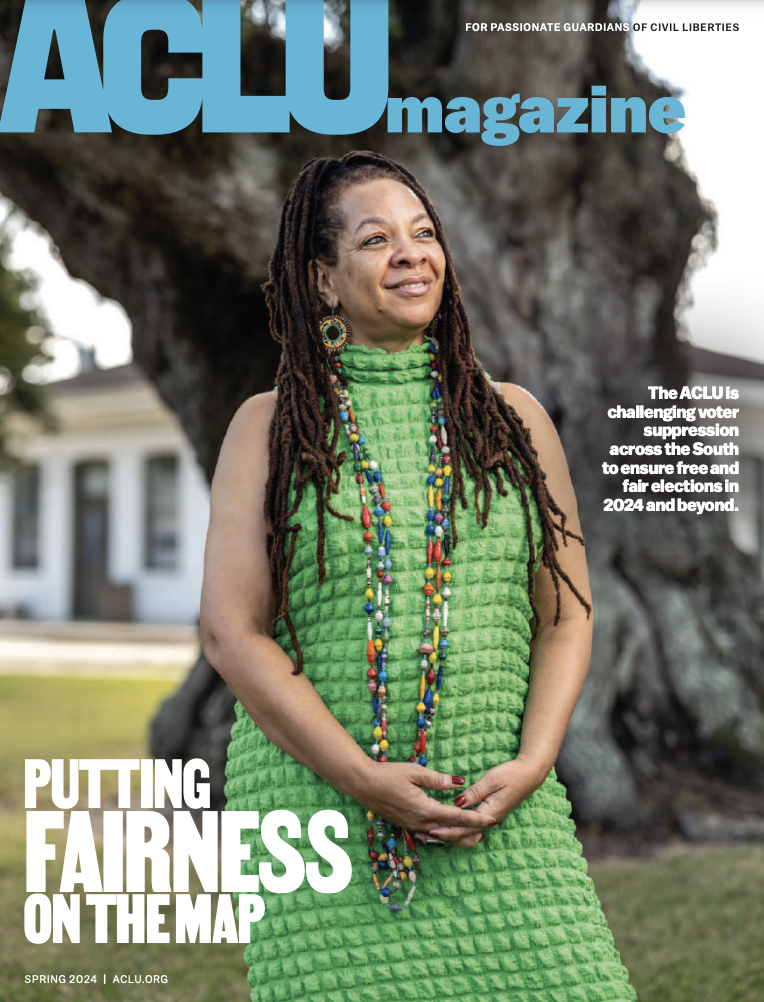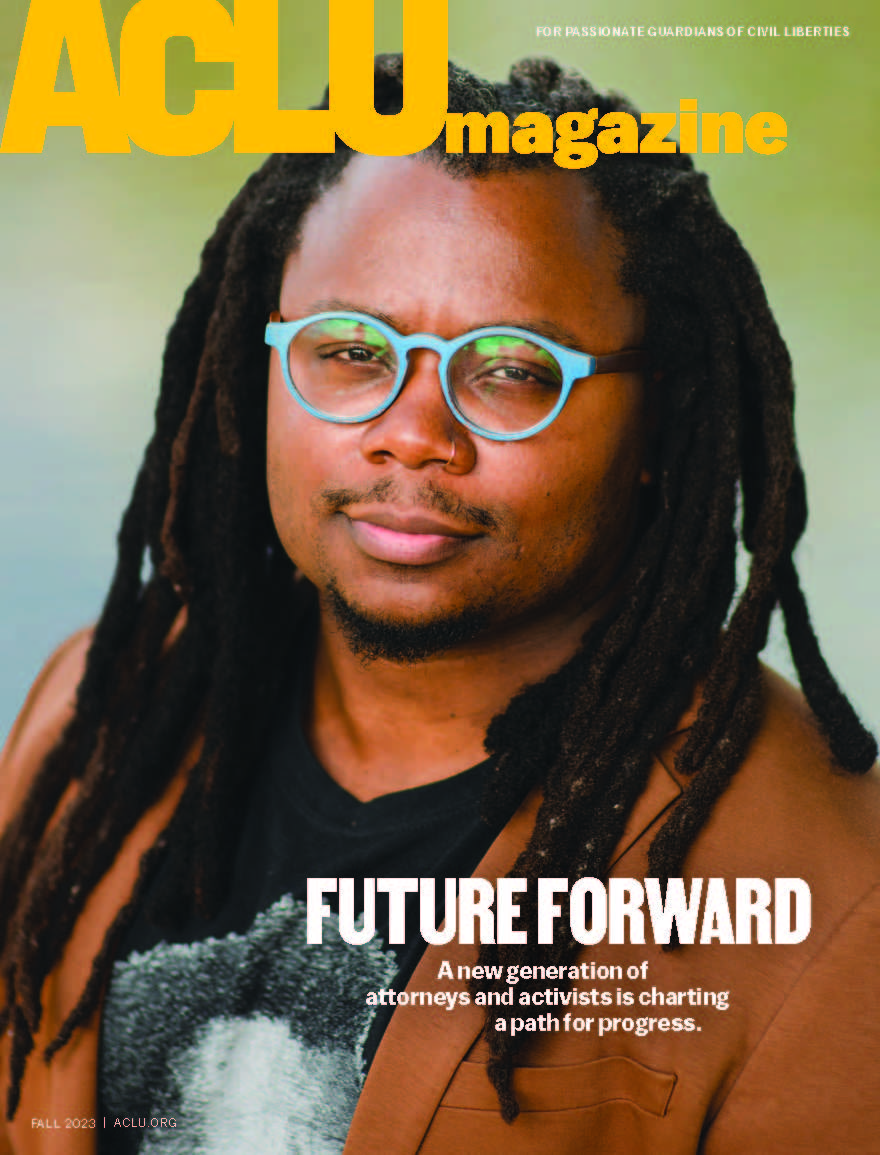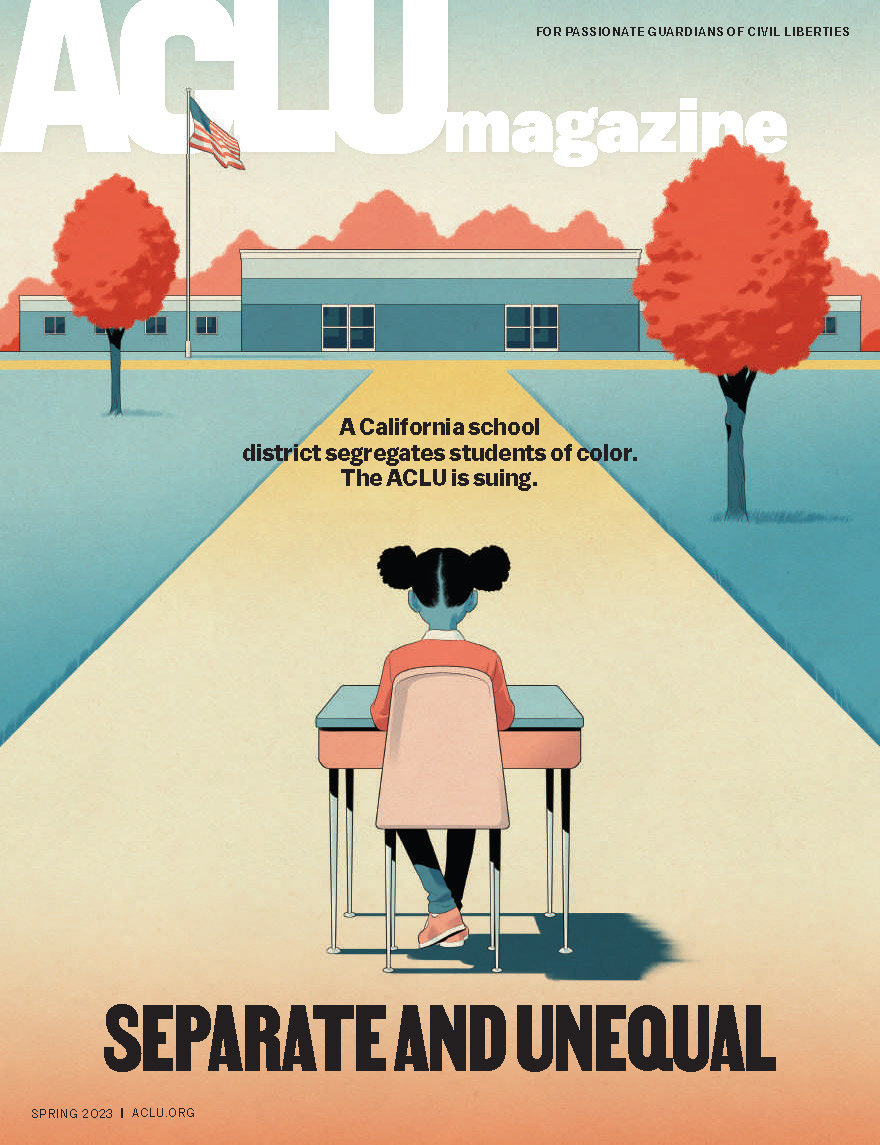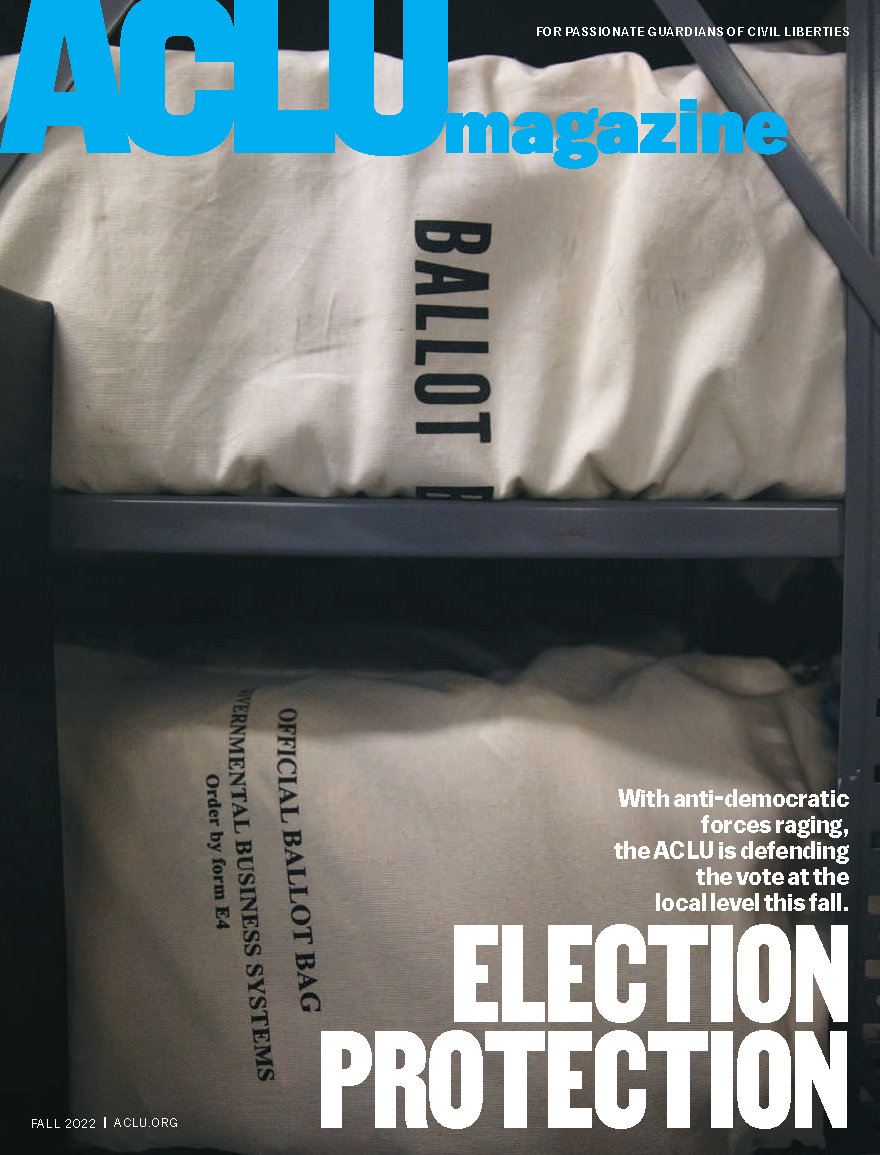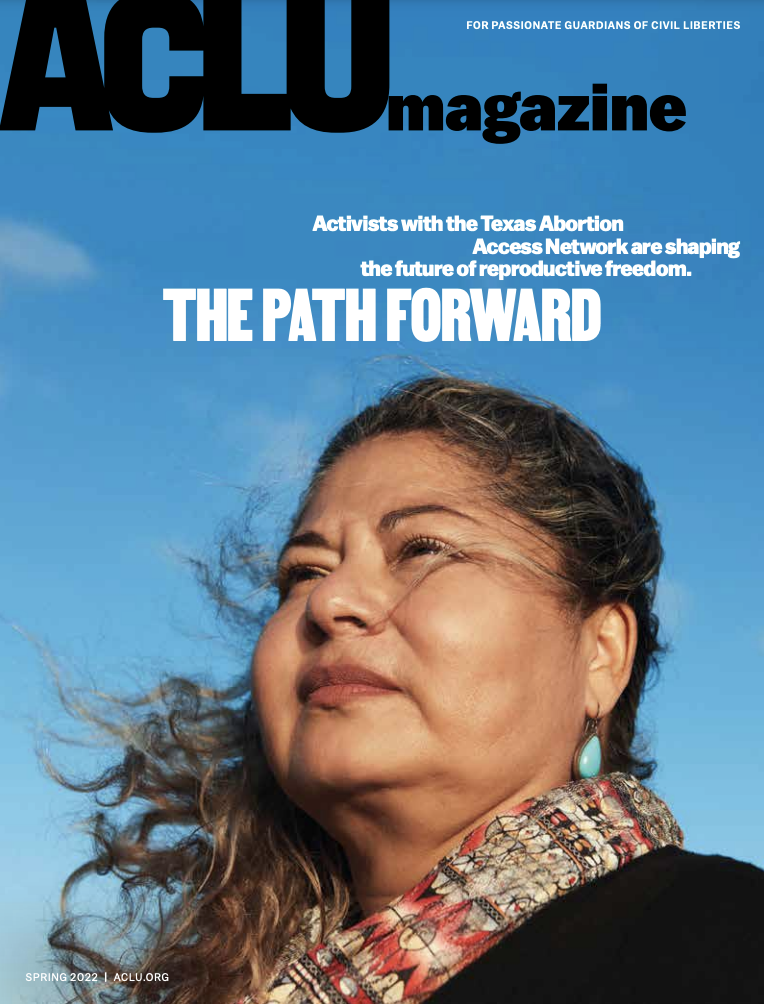Research & Publications
Access in-depth resources and analysis published by the ACLU regarding our most pressing civil liberties issues.
ACLU 2024 Annual Report
The ACLU’s 2024 annual report highlights how the organization worked around the clock this year to safeguard voting rights ahead of the November elections, protect bodily autonomy, defend free speech, and much more. Alongside breakdowns of the ACLU’s key wins and efforts throughout 2024, the report tells the stories of ACLU activists, advocates, and clients who are on the front lines of this fight.
All Publications
Search will open in a new tab using DuckDuckGo
Drawing the Line
Throughout history, religious belief has often been a wellspring of motivation and inspiration for those seeking to advance justice and equality. But it has also been used as justification to discriminate on the basis of race, gender, sexual orientation, and other religious beliefs.
This report, Drawing the Line: Tackling Tensions Between Religious Freedom and Equality, examines several of the questions now the subject of litigation, public debate, and policy discourse. It sets out a framework that we believe should guide our analysis and then focuses on three specific areas: religious freedom and the rights of LGBT individuals, religious freedom and reproductive rights, and religious freedom as expressed in appearance. Through the examination of a sampling of key cases, we strive in this report to articulate principles and recommendations that can guide advocates and policymakers.
The report is unique as it is issued by the International Network of Civil Liberties Organizations. We are committed to upholding freedom of religion and conscience as a fundamental human right to be valued, defended, and protected. At the same time, we are engaged in, and supportive of, efforts to advance equal treatment for groups that have long been oppressed, including lesbian, gay, bisexual, and transgender (LGBT) people, women, and racial and religious minorities.
Schools in Transition
Schools In Transition: A Guide for Supporting Transgender Students in K-12 Schools is a first-of-its-kind publication for school administrations, teachers, and parents about how to provide safe and supportive environments for all transgender students, kindergarten through twelfth grade. It was written by staffers from the ACLU, National Center for Lesbian Rights (NCLR), Gender Spectrum, the National Education Association (NEA), and the Human Rights Campaign (HRC).
Please note that the PDF is laid out to be printed on A4 paper. If you don't have acces to A4 paper, you can scale to fit on 8.5" x 11" letterhead paper when printing.
A Tale of Two Recoveries: Economic Recoveries for Black and White Homeowners
America's racial wealth gap increased dramatically following the recent housing market collapse, placing black homeowners at severe economic disadvantage, perhaps for generations to come.
A study conducted for the ACLU by the Social Science Research Council, examined data from the longitudinal Panel Study on Income Dynamics concerning black and white households that owned a home at some point between 1999 and 2011.
The report explores the dramatic changes in wealth and home equity for these families over the course of that time period, and predicts how those changes might affect their children and grandchildren.
SILENCED: How Nuisance Ordinances Punish Crime Victims in New York
Housing security and access to effective emergency and police assistance are fundamental elements of creating safe and vibrant communities. For victims of domestic violence, housing and police access can take on even more importance, as they are often integral to escaping lifethreatening violence and living free from abuse. However, municipalities across the country are increasingly enacting laws that penalize tenants and property owners based on police response or criminal activity occurring on a property. These laws – typically called nuisance ordinances, crime free ordinances, or disorderly house laws – deter crime victims from reporting crime and frequently lead to evictions or other harmful penalties for victims who do call 911 in an emergency.
Safe Homes, Safe Communities
One in three women experiences domestic violence in her lifetime, resulting in physical injury, economic distress, psychological trauma, and even death. Domestic violence is a nationwide crisis that wreaks havoc on the lives of victims and their families, and has far-reaching consequences for entire communities. One such consequence is that survivors are at heightened risk for homelessness and housing insecurity, due to factors including discrimination, loss of employment, economic abuse leading to poor credit history, and survivor’s need to be in a home that is secure from their abuser. This guide recommends best practices for local leaders to promote fair housing for DV survivors in their communities.
This guide is written for municipal, county, and state leaders who influence the policies of their communities with respect to housing, emergency shelter, policing, and social services. Advocates can also use this guide to strengthen how their community addresses the housing needs of survivors.
The guide covers the following topics:
- Information about the federal and state laws affecting housing for domestic violence survivors
- Best practices for promoting fair housing for domestic violence survivors, including information on how to:
- Incorporate domestic violence considerations into local housing planning;
- Protect domestic violence victims’ access to effective police assistance;
- Protect domestic violence survivors’ rights in rented or owned homes;
- Collaborate with and support the efforts of domestic violence service providers; and
- Protect public housing and Section 8 housing tenants.
By vigilantly safeguarding the housing rights of domestic violence survivors, municipalities can protect not only the survivors, but entire communities from the disastrous consequences of DV and housing insecurity.
Appendix
In addition to the Safe Homes, Safe Communities guide, the following are useful resources for local leaders to learn more about domestic violence and fair housing, their obligations, and affirmative ways to protect domestic violence survivors.
- State Laws
- Nat'l Hous. Law Project, Hous. Rts of Domestic Violence Survivors: A State and Local Law Compendium (2014)
- Residential Tenant’s Right to Seek Police and Emergency Assistance Law, Minn. Stat. § 504B.205 (2014)
- Protection for victims of abuse or crime, 53 Pa. Cons. Stat. Ann. § 304 (2014)
- Municipal Laws
- Monroe County Code §§ 260-1 & 260-2
- Westchester County Code §§ 700.02, 700.05, & 700.21
- S.F., Cal., Admin. Code ch. 37, § 9
- Federal Guidance and Information on Federal Requirements
- The Violence Against Women Reauthorization Act of 2013: Overview of Applicability to HUD Programs, 78 Fed. Reg. 47717 (Aug. 6, 2013)
- Violence Against Women Reauthorization Act of 2013: Implementation in HUD Housing Programs, Docket No. FR-5720-P-02 (proposed March 25, 2015) (to be codified at 24 CFR pts. 5, 92, 200, 574, 576, 578, 880, 882, 883, 884, 886, 891, 960, 966, 982-83)
- Affirmatively Furthering Fair Housing Proposed Rule, 78 Fed. Reg. 43,710, 43,712 (proposed July 19, 2013) (to be codified at 24 CFR pts. 5, 91, 92, 570, 574, 576, and 903)
- U. S. Interagency Council on Homelessness, PHA Programs and Policies Working to Prevent Homelessness Protecting Victims of Domestic Violence PHA Domestic Violence Guide
- Karlo Ng, Rural Development Issues Notice on VAWA Implementation, 44 Housing Law Bulletin 69 (2014)
- Gideon Anders & Karlo Ng, VAWA 2013 Implementation Updates, 44 Housing Law Bulletin 154 (2014)
- Karlo Ng, Rural Development Issues Revised VAWA Implementation Notice, 45 Housing Law Bulletin 38 (2015)
- Information on Briggs v. Norristown
- Reports
- Matthew Desmond & Nicol Valdez, Unpolicing the Urban Poor: Consequences of Third-Party Policing for Inner-City Women, 78 Am. Sociological Rev. 117 (2013)
- Emily Werth, Sargent Shriver Nat’l Ctr. On Poverty Law, The Cost of Being Crime Free: Legal and Free Rental Housing and Nuisance Property Ordinances 5-20 (Aug. 2013)
ACLU Magazine
Published twice a year, ACLU Magazine shares updates on the ACLU's critical litigation and advocacy work across the country and tells the stories of the activists, attorneys, and clients at the heart of each case and campaign. To receive ACLU Magazine by mail, become a monthly donor today.
